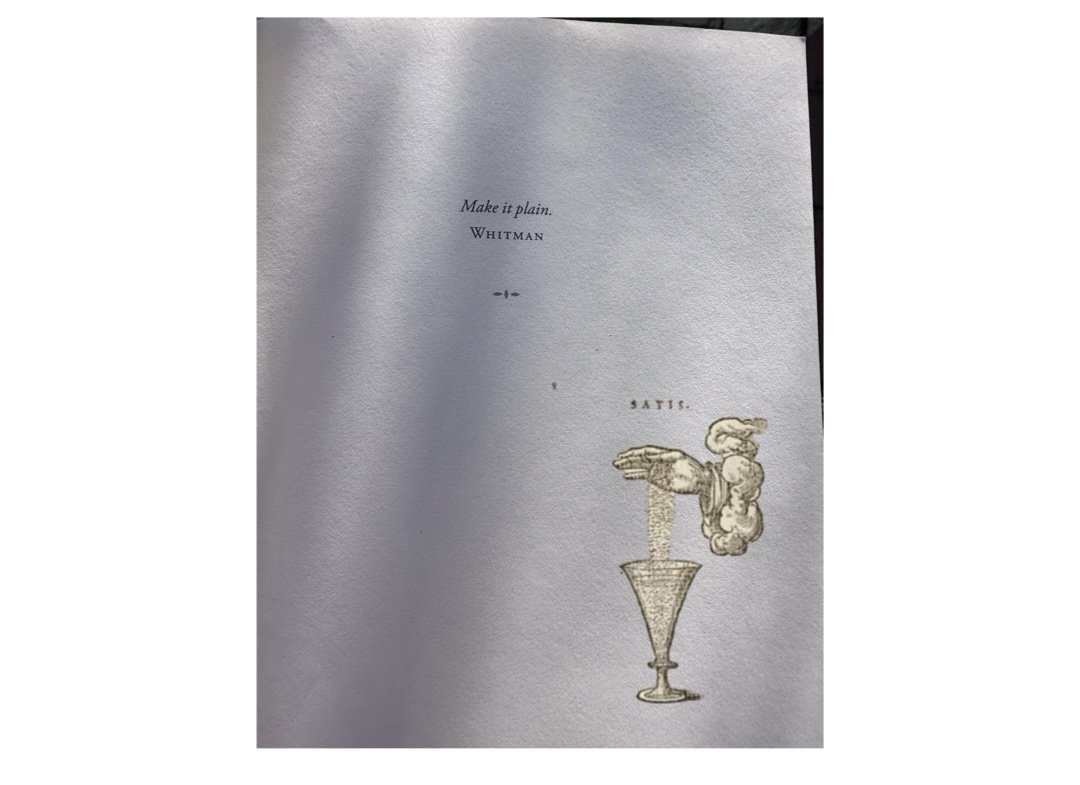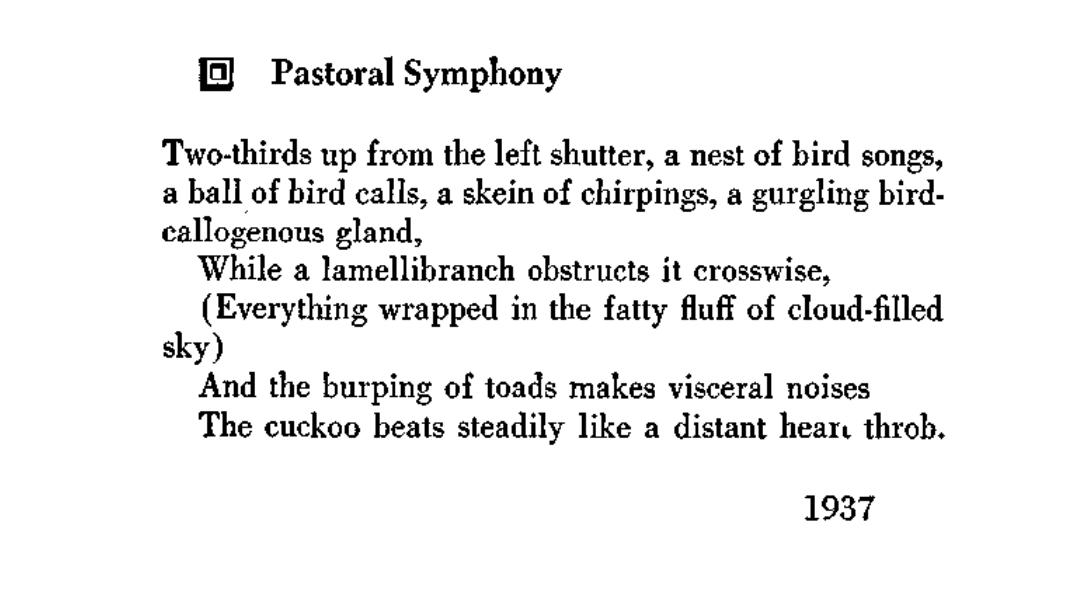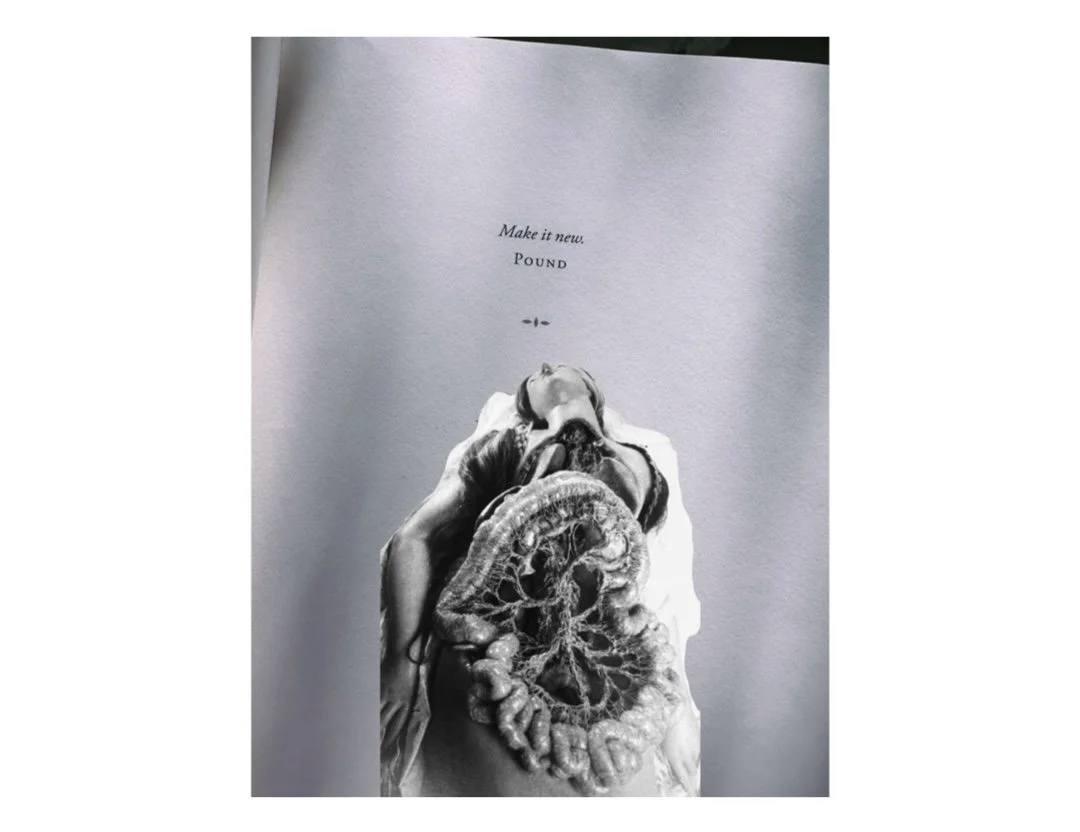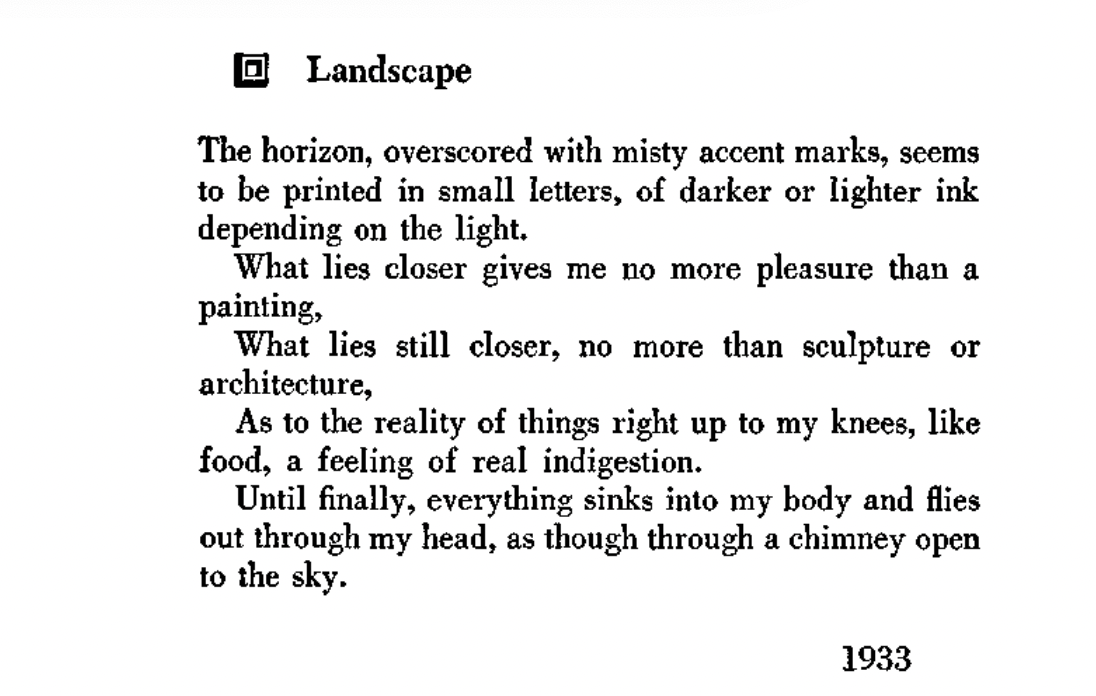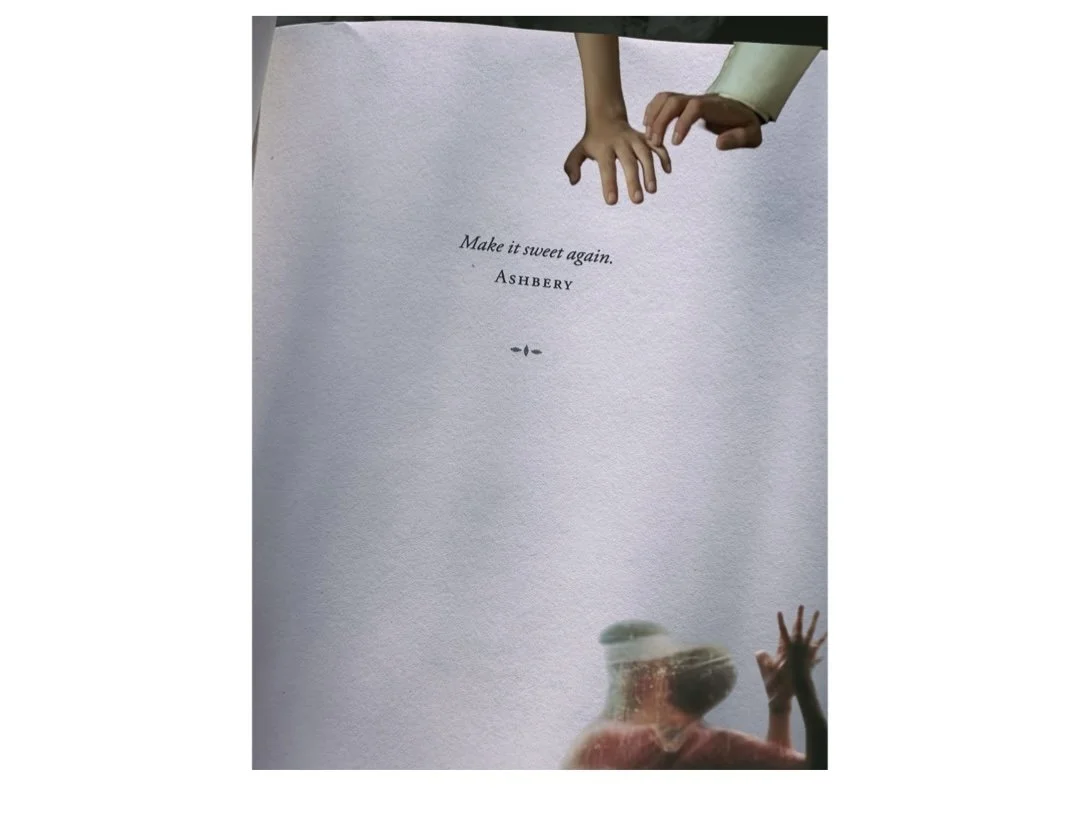I found that I liked noises even more than I liked intervals.
— John Cage, “Lecture on Nothing”
Shall we for this vain bubble's shadow pay?
— John Donne, “Love’s Alchemy”
[I]
Stand still, and I will read to thee a lecture, Love, in love's philosophy. These three hours that we have spent, walking here, two shadows went along with us, which we ourselves produced. But, now the sun is just above our head, we do those shadows tread, and to brave clearness all things are reduced. All this being another way of seeing and hearing Donne’s lecture as it falls upon the shadow.
In the same “skein”: to hear Francis Ponge’s pastoral symphony conducted by wind, its beat wired to the cuckoo’s hearts in ours.
Francis Ponge, as translated by Beth Archer
[II]
Newness ignores its lineage. Poetry attempts to seduce, to persuade, as buried in the Greek word, suasoria, referring to a rhetorical device in persuasion. Attempting to sway a stranger with language is foolish (and perhaps even narcissistic, if one pauses to consider it). Nevertheless, Ovid attempted a suasoria of the Dawn. Even the aubade tugs the lover's face back to the bed they just left. Everything sinks into the body and flies out through the head:
Francis Ponge, as translated by Beth Archer
[III]
At first, Kafka’s friends and lovers strolled into his diaries with their names intact: Max, Felice, Milena, etc.
But as the persons in his diaries turned into characters in his stories, Kafka began designating them by the first letter of their given name.
M. F. — this world of beings derived from initial sounds crept into the terms of address in his correspondence.
On January 18th, 1922, his diary introduces a character called S.
“S. crushes me,” Kafka says, “it torments me day and night, I'd have to overcome my fear and shame and probably sadness too in order to satisfy it, but on the other hand I'm certain that if a quick and nearby and willing opportunity were to present itself, I'd take advantage of it right away, without fear or sadness or shame...”
So S. is sex.
Alliteration is a way of associating the initial sound of a word with its kindreds: sex, Ashbery’s sweetness, Ponge’s songs and sky and seemingness, Kafka’s shame and sadness . . . Scylla; sirens; speculation (“What Song the Syrens sang, or what name Achilles assumed when he hid himself among women, though puzzling questions, are not beyond all conjecture,” as Sir Thomas Brown stated in his Urn Burial); sibilance (a specific type of alliteration or repetition technique that uses the soft consonants to create hissing sounds); sibyl; sortie; salacious; seek; sacred; serpent; serpentine verses (“Crescit amor nummi, quantum ipsa pecunia crescit,” i.e. Greater grows the love of self, as self itself grows greater); snaking; sensorium; silhouette (the outline of someone or something); slant; soliloquy (a monologue addressed to oneself, thoughts spoken out loud without addressing another); sonata; sonatina; sonnet; sepulchral statues. Surely the slithering soundscape is endless.
The rot remains with us, the men are gone.
But, as dead ash is lifted in a wind
That fans the blackening ember of the mind,
My eyes burned from the ashen prose of Donne.
— Derek Wolcott, “Ruins of a Great House”
*
Abel Korzeniowski, “Clouds” (An Angel in Cracow)
Eunike Tanzil, “Metamorphosis” (The First of Everything)
Derek Wolcott, “Ruins of a Great House”
Francis Ponge, The Voice of Things, edited and translated by Beth Archer (PDF)
John Cage, “Lecture on Nothing”
John Donne, “A Lecture upon the Shadow”
John Donne, “Love’s Alchemy”
John Donne, “The Ecstasy”
Tomaso Antonio Vitali, “Chaconne in G Minor” as performed by Jascha Heifetz and Richard Ellsasser
for P, my ‘little time’ being yours
